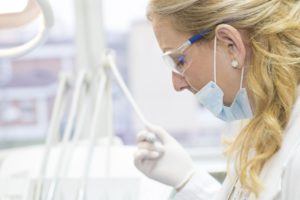In a world dominated by information, the ability to decipher and apply knowledge is a formidable power. This is especially true in the realm of healthcare, where having a basic understanding of medical concepts, procedures, and health-related decisions can quite literally be a matter of life and death. Healthcare literacy, the ability to access, understand, and utilise health information, has emerged as a crucial skill that has the potential to save lives. Here, we will explore how healthcare literacy can make a significant difference in both individual well-being and community health.
Empowering Individuals to Navigate the Healthcare System

Navigating the intricate healthcare system can be overwhelming for individuals, particularly those without a medical background. However, with the acquisition of essential healthcare literacy skills through primary health care courses, individuals can gain the confidence to comprehend medical terminologies, insurance policies, and treatment alternatives. An advanced clinical assessment course can also empower individuals to engage in meaningful discussions with healthcare providers regarding diagnoses and treatment plans, fostering a sense of control and active participation in their health journey.
Preventing Medical Errors through Informed Decision-Making
Medical errors are a sobering reality within the healthcare industry. From misdiagnoses to incorrect medications, these errors can have devastating consequences. However, many errors can be avoided with a basic understanding of healthcare principles. When individuals comprehend their medical conditions, prescribed treatments, and potential risks, they are more likely to identify discrepancies and seek clarification from their healthcare providers. This collaborative approach reduces the chances of errors slipping through the cracks.
Promoting Early Detection and Prevention
Detecting the health issue at an early stage often increases the chances of recovery. Healthcare literacy enables individuals to recognise the warning signs of various medical conditions, empowering them to seek medical attention at the earliest sign of trouble. This is particularly critical in cases of conditions with subtle symptoms, such as certain types of cancer or cardiovascular diseases.
Healthcare literacy emphasises the importance of preventive measures. Individuals who understand the significance of regular health check-ups, vaccinations, and healthy lifestyle choices are more likely to take proactive steps to maintain their well-being. This not only improves individual health outcomes but also contributes to the overall reduction of disease burden in communities.
Reducing Disparities in Healthcare Access
Healthcare disparities remain a pressing issue in many societies. Limited access to quality healthcare is often compounded by a lack of understanding about available resources and treatment options. Healthcare literacy acts as a tool of empowerment, enabling marginalised and underserved populations to navigate the healthcare landscape more effectively.
When individuals are equipped with the knowledge to ask the right questions, understand treatment plans, and explore available support systems, the gap between healthcare access and outcomes begins to narrow. Healthcare literacy thus becomes a powerful force in promoting equity in healthcare.
Promoting Medication Adherence and Safety
Medication non-adherence is a significant challenge in healthcare. Patients failing to take prescribed medications as directed can lead to worsening conditions, treatment failures, and even hospitalisations. Healthcare literacy can play a pivotal role in addressing this issue.
Understanding why medications are prescribed, how they work, and potential interactions empowers individuals to take their medications responsibly. Additionally, healthcare literacy equips individuals with the ability to identify potential side effects and seek medical guidance when needed. This not only improves treatment efficacy but also ensures patient safety.
Fostering Informed Health Advocacy
Healthcare literacy extends beyond individual health. Informed individuals become advocates for their families, friends, and communities. When equipped with accurate health information, individuals can engage in conversations, share knowledge, and encourage preventive practices within their social circles.
Healthcare literacy also encourages individuals to be proactive in advocating for public health measures and policies. Understanding the importance of vaccinations, hygiene practices, and disease prevention strategies, individuals can actively participate in initiatives that safeguard the well-being of the broader population.
In a nutshell, in a world where health information is abundant but often overwhelming, healthcare literacy emerges as a lifeline. Its impact extends far beyond personal well-being, reaching into communities and shaping the landscape of public health. By promoting empowerment, informed decision-making, prevention, and advocacy, healthcare literacy becomes a beacon of hope in the pursuit of better health outcomes and, ultimately, the preservation of lives. As we continue to navigate the complexities of the healthcare system, let us remember that knowledge truly is power – a power that can save lives.




